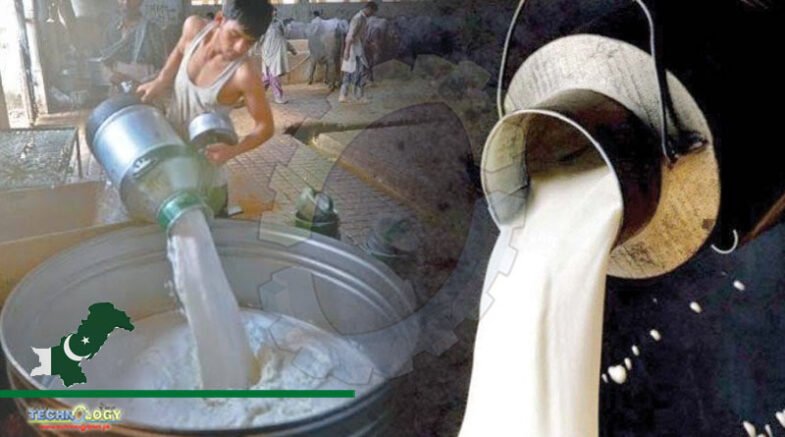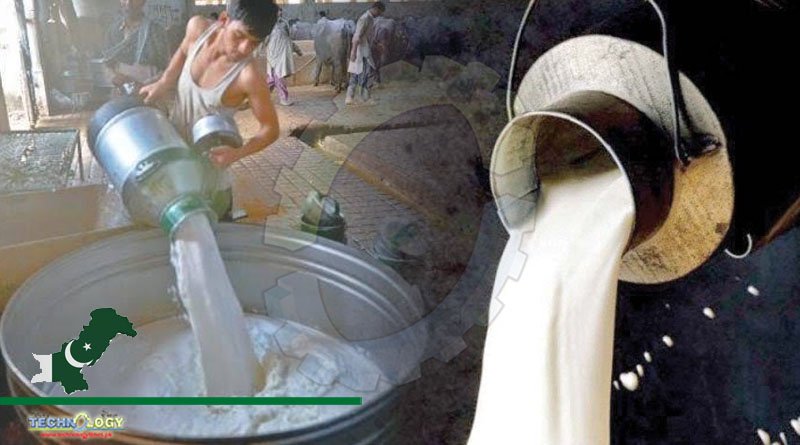Loose milk is highly perishable, prone to microbial growth and survival, and serves as a vehicle for food-borne pathogens.

The University of Veterinary and Animal Sciences (UVAS) conducted a nationwide survey on milk quality and safety and discovered that 91% of loose milk samples were non-compliant with quality and safety parameters. On December 15th, an event was held at the Emporium Hotel in Lahore to disseminate the results, and the press was invited to attend.
Compliance with regulatory limits was tested for five quality and safety parameters. Composition, adulteration, antibiotic residues, Aflatoxin M1, and heavy metals were among them. On all of these parameters, loose milk was found to be mostly unsafe.
There was no nationally representative data on the safety and quality of loose milk in Pakistan, so UVAS conducted a national survey to fill that void. This national survey was conducted in Pakistan’s top 11 cities by Nielsen, a top multinational research agency that designed its sampling plan to ensure the accuracy of the results.
Dr. Azmat Ullah Khan, Associate Professor, Department of Food Science & Human Nutrition, University of Veterinary and Animal Sciences UVAS, Lahore, and Principal Investigator of this project, presented the detailed findings of this research report at a special health symposium in Lahore in the presence of Dr. Nasim Ahmed (S.I), Vice Chancellor UVAS. Apart from that, Professor Dr. Talat Naseer Pasha (SI) spoke about its significance on this occasion.
It is worth noting that Pakistan is the world’s fourth largest milk producer. 95% of the milk consumed is loose milk, which is delivered to the end user for immediate consumption via an informal multi-layered distribution system of middlemen (milkmen).
Because the traditional loose milk supply chain system is unorganised and unregulated, milk quality is rarely maintained, resulting in serious food safety issues at the consumer level. Because this informal loose milk supply chain channel lacks proper transportation and storage facilities, milk quality suffers.
Loose milk is highly perishable, prone to microbial growth and survival, and serves as a vehicle for food-borne pathogens. In addition to microbial contamination, antimicrobial drug residues, pesticide residues, mycotoxins, heavy metals, and adulterants have been discovered in loose milk, posing a serious risk to our public’s health.
The Guest of Honor, Mudassar Riaz Malik, Director General of the Punjab Food Authority, also emphasises the importance of using safe milk.
The ceremony was also attended by the Chief Guest, Sardar Shahabuddin Khan Seehar, Minister of Livestock and Dairy Development. This situation necessitates immediate intervention by regulatory authorities as well as widespread public awareness of the implications for consumer health and safety. This is a national issue that should be taken seriously.
Originally published at Daily Times
